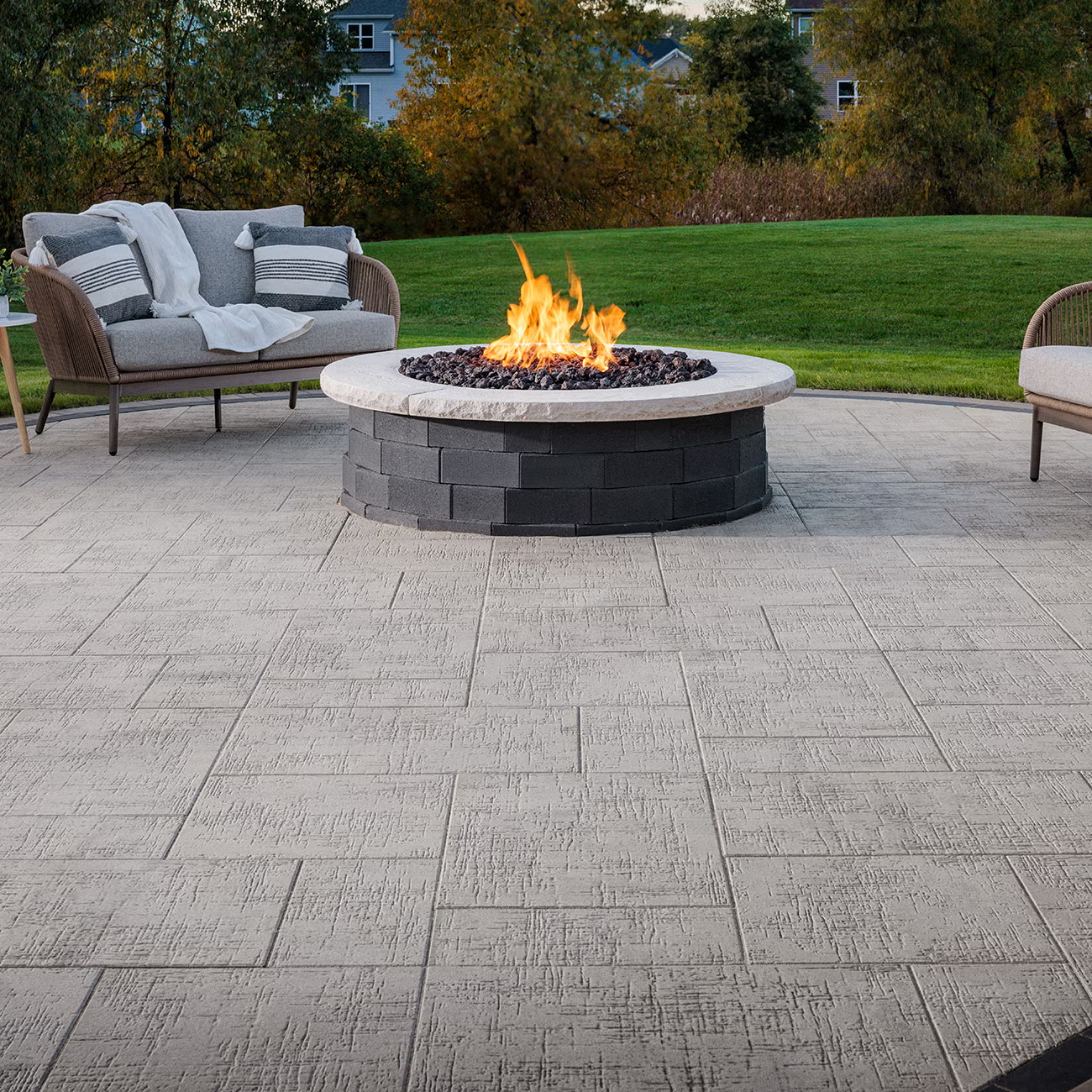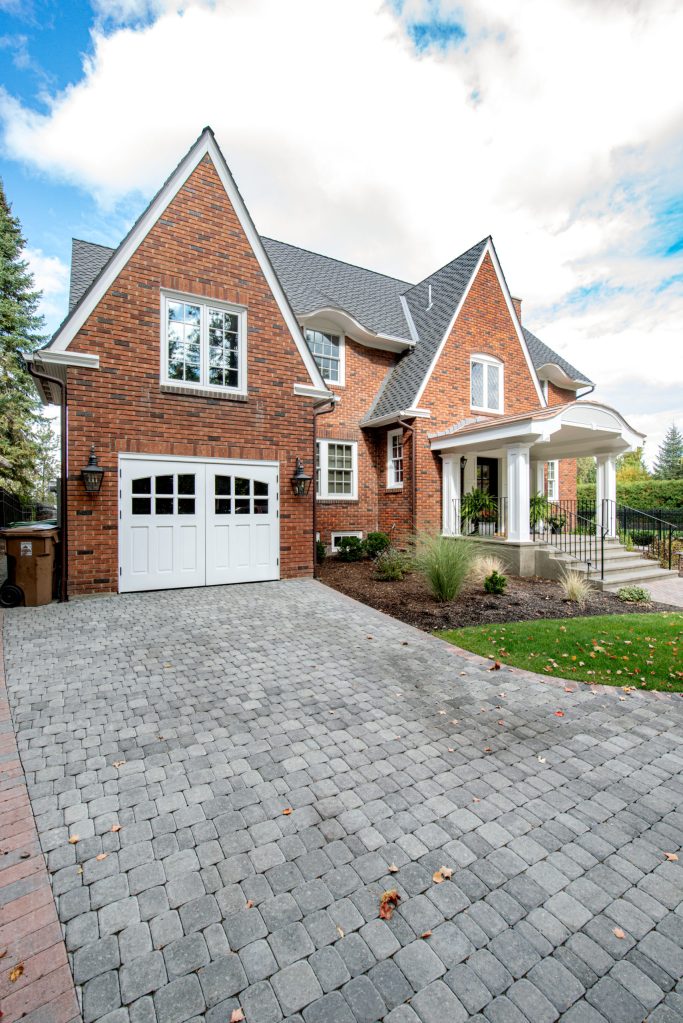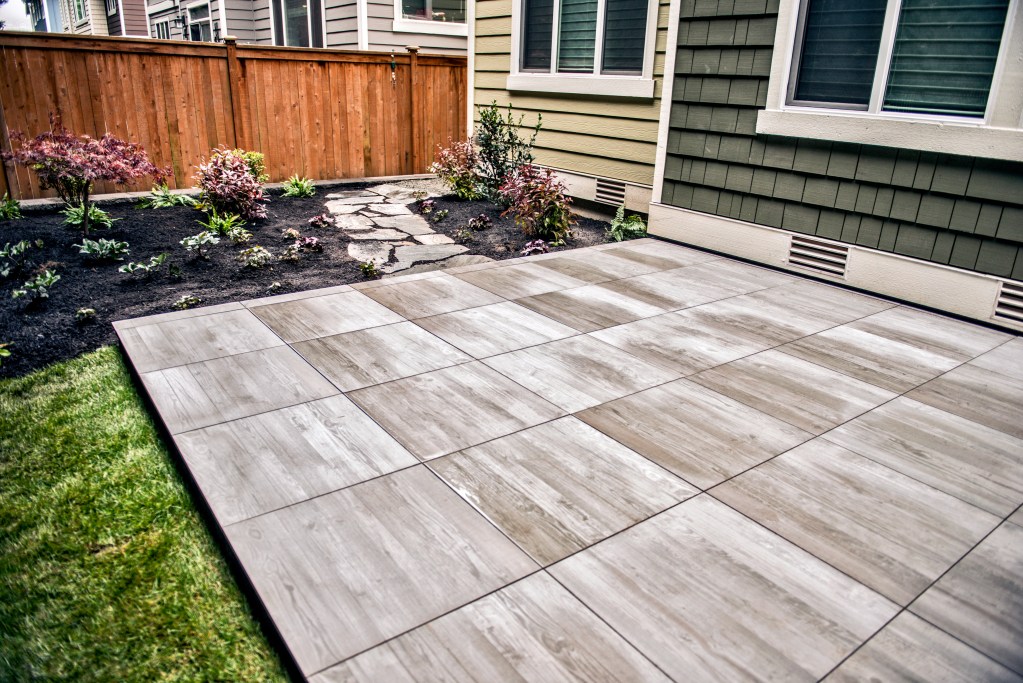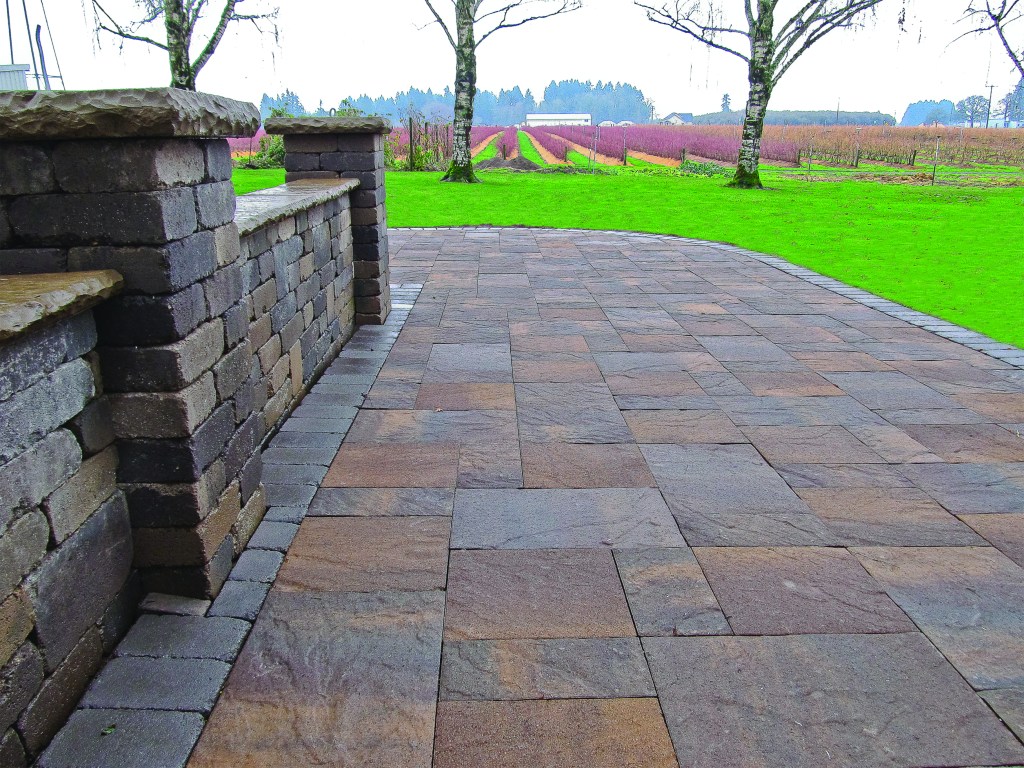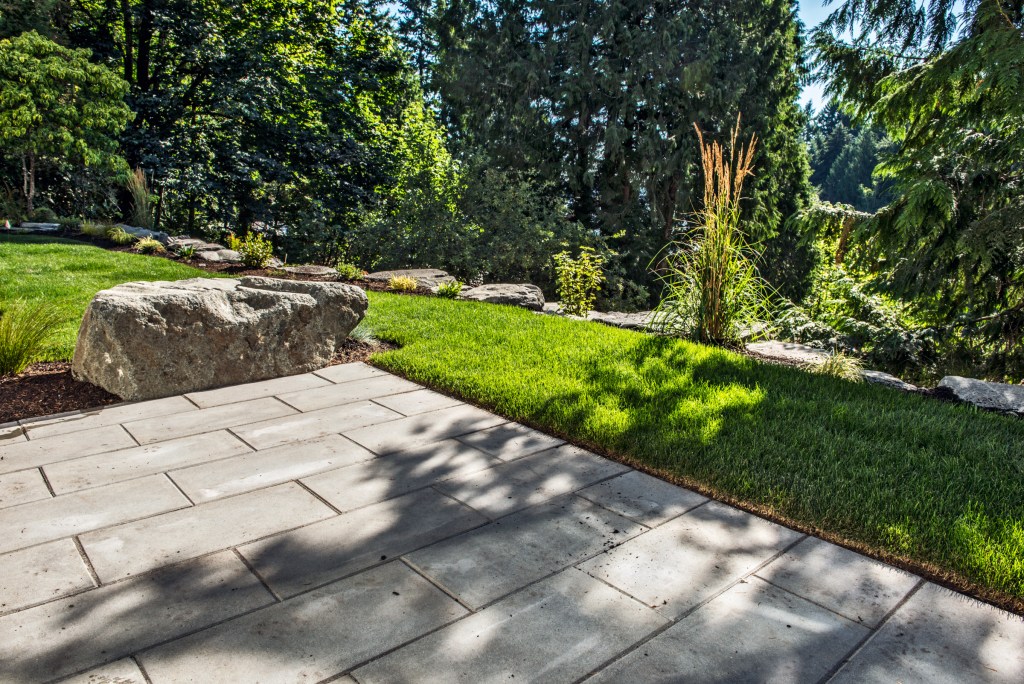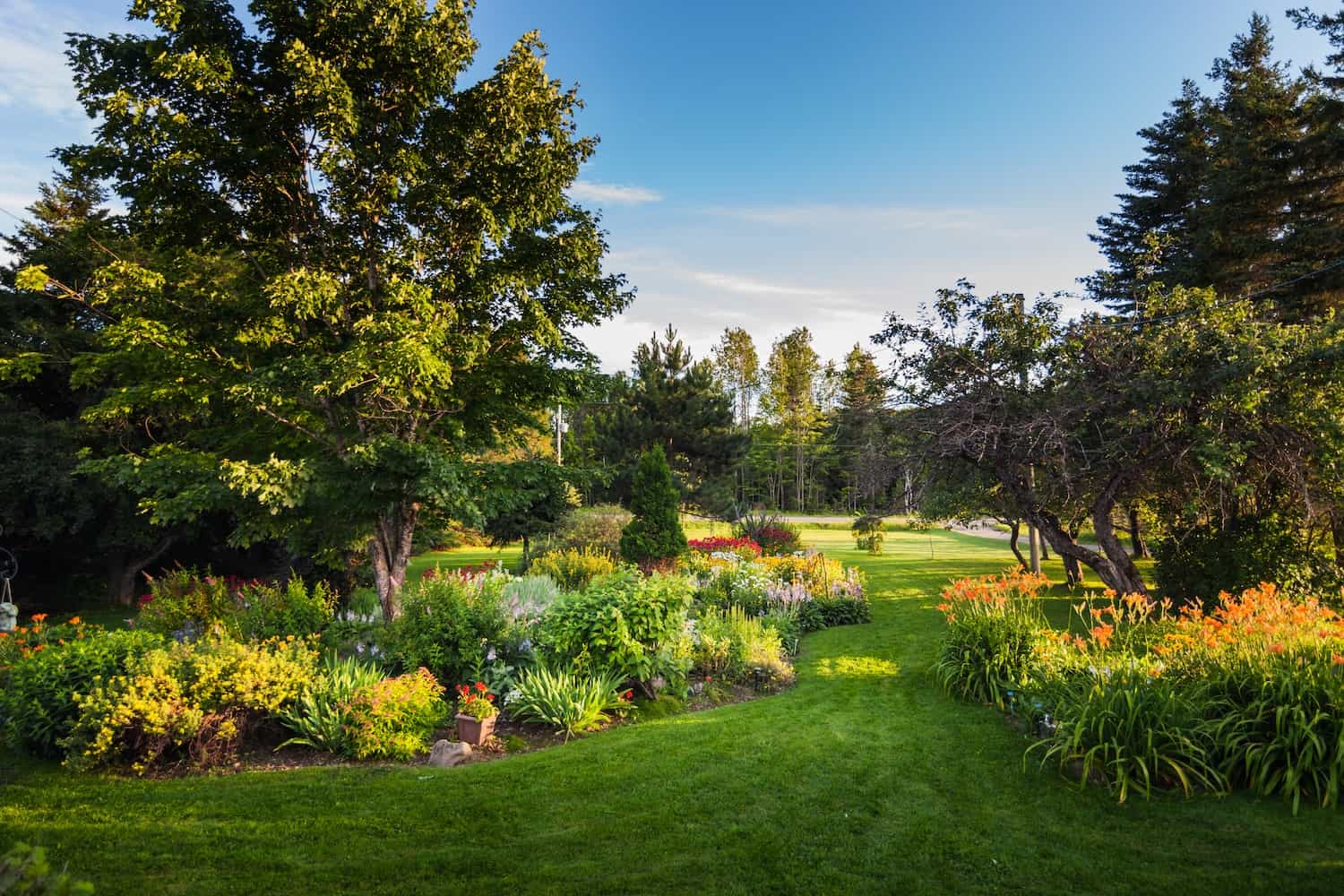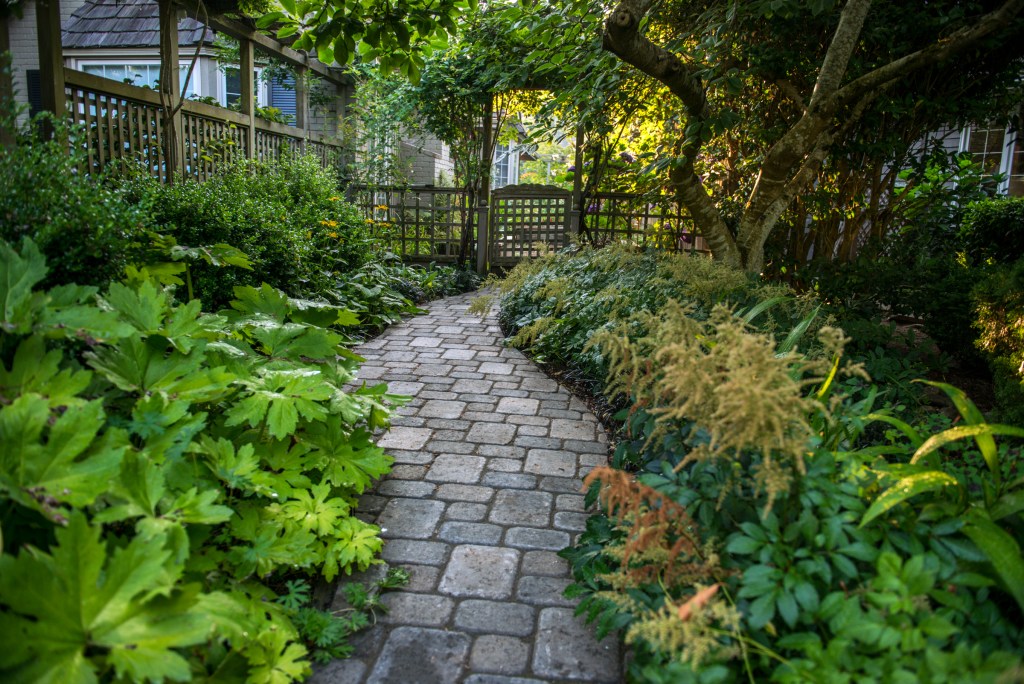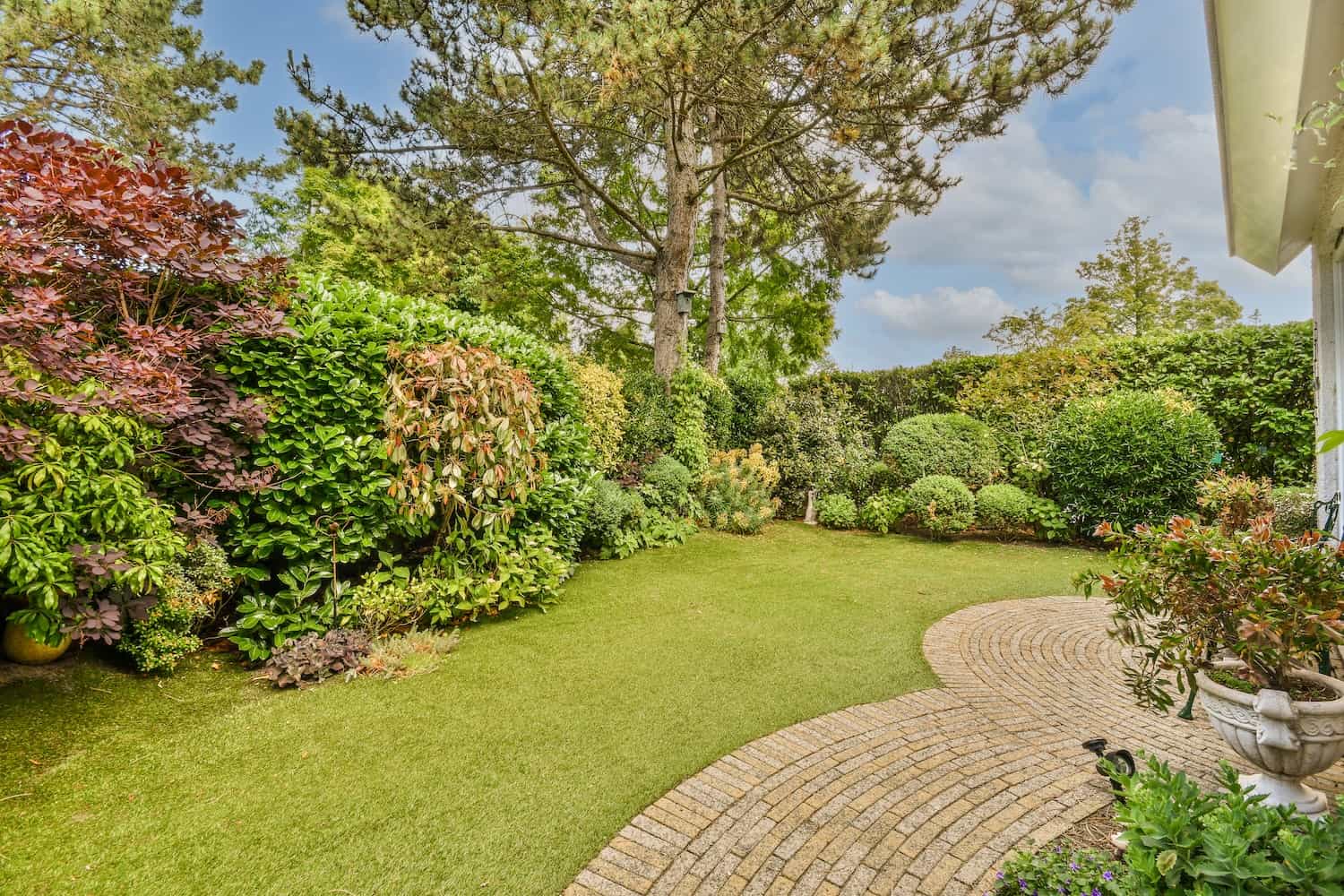
Pavers are a versatile and durable option for outdoor surfaces like driveways, patios, and walkways. They come in various materials, each with unique characteristics. Below is an in-depth look at different types of paver materials, how they are created, their qualities, and the pros and cons associated with each.
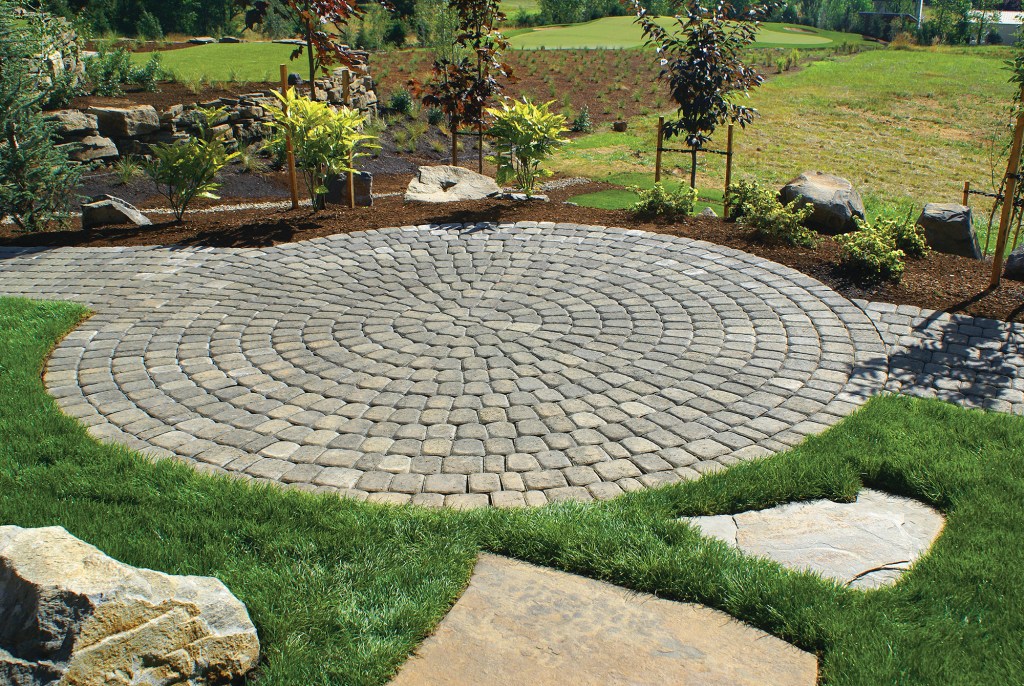
Concrete Pavers
Standard Concrete
Creation Process: Standard concrete pavers are made by mixing cement, sand, gravel, and water. This mixture is poured into molds of various shapes and sizes and then cured until hardened.
Qualities:
- Durability: Strong and can withstand heavy loads.
- Uniformity: Consistent size and shape for easy installation.
- Versatility: Available in multiple colors and finishes.
Pros:
- Cost-Effective: Generally less expensive than natural stone.
- Easy Installation: Uniform shapes simplify the laying process.
- Low Maintenance: Requires minimal upkeep.
Cons:
- Aesthetic Limitations: May lack the natural beauty of stone.
- Potential for Cracking: Can crack under extreme temperatures or heavy loads.
- Color Fading: Colors may fade over time due to UV exposure.

Stamped or Textured Concrete
Creation Process: Wet concrete is poured and then stamped with patterns or textures using specialized tools to mimic the appearance of stone, brick, or other materials.
Qualities:
- Aesthetics: Offers a high-end look at a lower cost.
- Seamless Surface: Provides a continuous surface without joints.
Pros:
- Design Flexibility: Wide range of patterns and colors.
- Cost Savings: Less expensive than using actual stone or brick.
Cons:
- Maintenance: Cracks can be more noticeable and harder to repair.
- Slipperiness: Textured surfaces can become slippery when wet.
- Professional Installation Required: Needs skilled labor for best results.
Permeable Concrete
Creation Process: Created by omitting fine aggregates from the concrete mix, resulting in a porous material that allows water to pass through.
Qualities:
- Environmental Benefits: Reduces runoff and promotes groundwater recharge.
- Drainage: Prevents pooling of water on surfaces.
Pros:
- Eco-Friendly: Helps manage stormwater naturally.
- Regulatory Compliance: May meet local permeability requirements.
Cons:
- Strength Limitations: Generally less strong than standard concrete.
- Maintenance: Pores can clog over time and require cleaning.

Natural Stone Pavers
Flagstone (Sandstone, Slate, Limestone)
Creation Process: Natural stone is quarried and cut into flat slabs of varying shapes and sizes.
Qualities:
- Unique Appearance: Each piece has distinct colors and patterns.
- Natural Texture: Provides a rustic and organic look.
Pros:
- Aesthetic Appeal: Enhances property value with a high-end look.
- Durability: Long-lasting with proper care.
- Versatility: Suitable for various design styles.
Cons:
- Cost: More expensive than manufactured options.
- Installation Complexity: Irregular shapes require skilled installation.
- Surface Maintenance: Can become slippery and may need sealing.
Granite
Creation Process: Granite is quarried and cut into pavers, often polished for a refined finish.
Qualities:
- Hardness: Extremely durable and resistant to scratches.
- Low Porosity: Resists staining and moisture absorption.
Pros:
- Longevity: Can last for decades without significant wear.
- Minimal Maintenance: Easy to clean and maintain.
- Elegant Look: Adds a luxurious touch to spaces.
Cons:
- High Cost: One of the more expensive paver options.
- Limited Color Range: Mostly available in earth tones.
- Installation Difficulty: Heavy and hard to cut.
Travertine
Creation Process: Formed from mineral deposits in natural springs, travertine is cut into tiles and pavers.
Qualities:
- Porous Surface: Contains natural holes and troughs.
- Color Variety: Comes in warm earth tones like beige, brown, and gold.
Pros:
- Cool Underfoot: Doesn’t retain heat, ideal for pool areas.
- Slip-Resistant: Textured surface provides traction.
- Aesthetic Warmth: Adds a Mediterranean feel.
Cons:
- Requires Sealing: Needs to be sealed to prevent staining.
- Vulnerability to Acids: Can be etched by acidic substances.
- Higher Cost: More expensive than concrete or brick.

Bluestone
Creation Process: A type of sandstone, bluestone is quarried and cut into slabs or tiles.
Qualities:
- Distinctive Color: Known for its blue-gray hue.
- Fine-Grained Texture: Smooth yet slip-resistant surface.
Pros:
- Visual Appeal: Offers a sophisticated and unique look.
- Durability: Withstands harsh weather conditions.
- Versatile Uses: Suitable for patios, walkways, and pool decks.
Cons:
- Color Fading: Prolonged sun exposure can lighten the color.
- Cost: Pricier than standard concrete options.
- Maintenance: May require sealing to preserve color.
Cobblestone
Creation Process: Natural stones, often granite, cut into small blocks with rounded or squared edges.
Qualities:
- Historical Charm: Provides a classic, old-world appearance.
- Exceptional Durability: Can last for centuries.
Pros:
- Longevity: Extremely long-lasting with minimal wear.
- Unique Aesthetic: Adds character and charm.
- Low Maintenance: Resistant to staining and cracking.
Cons:
- Uneven Surface: Can be difficult to walk on with certain footwear.
- Installation Cost: Labor-intensive to install properly.
- High Material Cost: More expensive than other options.

Brick Pavers
Clay Brick
Creation Process: Natural clay is shaped into bricks and fired in a kiln at high temperatures.
Qualities:
- Classic Look: Traditional red to brown hues.
- Strength: Good compressive strength.
Pros:
- Timeless Appeal: Suits various architectural styles.
- Color Retention: Colors do not fade significantly over time.
- Eco-Friendly: Made from natural materials.
Cons:
- Brittleness: Can chip or crack under heavy loads.
- Limited Color Options: Mostly available in earthy tones.
- Maintenance: May require periodic sealing.
Reclaimed Brick
Creation Process: Salvaged from old buildings or roads, cleaned, and repurposed.
Qualities:
- Historic Character: Weathered appearance with unique markings.
- Sustainability: Reduces waste by recycling materials.
Pros:
- Eco-Friendly: Promotes recycling and sustainability.
- Unique Aesthetic: Each brick has its own story.
- Durability: Older bricks were often made to high standards.
Cons:
- Variable Quality: Inconsistent sizes and strengths.
- Limited Supply: Availability can be unpredictable.
- Higher Cost: May be more expensive due to rarity.

Porcelain Pavers
Creation Process: Manufactured from refined clay and other natural materials, pressed into shape, and kiln-fired at very high temperatures.
Qualities:
- High Density: Low porosity makes them resistant to moisture.
- Variety of Designs: Can mimic stone, wood, or concrete.
Pros:
- Durability: Resistant to scratches, stains, and fading.
- Low Maintenance: Easy to clean and doesn’t require sealing.
- Lightweight: Easier to handle than natural stone.
Cons:
- Slippery When Wet: Requires textured finishes for outdoor use.
- Installation Costs: Typically requires professional installation.
- Fragility During Installation: Can crack if not handled properly.
Rubber Pavers
Creation Process: Made from recycled rubber materials, such as tires, which are cleaned, shredded, and molded into paver shapes.
Qualities:
- Resilience: Soft and flexible surface.
- Safety: Shock-absorbing properties.
Pros:
- Eco-Friendly: Utilizes recycled materials.
- Comfortable Surface: Easier on feet and joints.
- Slip-Resistant: Good for areas prone to moisture.
Cons:
- Durability Issues: Less long-lasting than stone or concrete.
- Color Fading: May fade with prolonged sun exposure.
- Aesthetic Limitations: Limited in design and color options.
Plastic Grid Systems
Creation Process: Consist of interlocking plastic grids placed over a prepared base, which are then filled with gravel, soil, or grass.
Qualities:
- Stabilization: Prevents shifting of fill materials.
- Permeability: Allows water to pass through easily.
Pros:
- Erosion Control: Ideal for sloped areas.
- Eco-Friendly: Supports grass growth for a green surface.
- Lightweight and Easy to Install: Can be installed without heavy machinery.
Cons:
- Load Bearing Limits: May not support very heavy vehicles unless properly filled.
- Maintenance: Gravel or soil may need to be replenished.
- Aesthetic Considerations: Industrial look may not suit all settings.
Asphalt Pavers
Creation Process: A mixture of aggregates and bitumen is heated, mixed, and then laid over a prepared surface and compacted.
Qualities:
- Flexibility: Can withstand temperature fluctuations.
- Dark Appearance: Absorbs heat, promoting quicker snow and ice melt.
Pros:
- Affordability: Less expensive than concrete or stone.
- Quick Installation: Can be laid and used within a short timeframe.
- Smooth Surface: Good for driveways and high-traffic areas.
Cons:
- Maintenance Needs: Requires sealing and may develop cracks.
- Shorter Lifespan: Doesn’t last as long as other materials.
- Limited Aesthetics: Fewer design options.
Composite Pavers
Creation Process: Made from a blend of recycled plastics and other materials, formed into pavers with interlocking edges.
Qualities:
- Lightweight: Easier to handle and install.
- Consistent Shape and Size: Facilitates uniform installation.
Pros:
- Environmental Benefit: Utilizes recycled materials.
- Resistance: Impervious to rot, insects, and moisture.
- Easy Installation: Often designed for DIY projects.
Cons:
- Strength Limitations: May not support very heavy loads.
- Synthetic Appearance: Lacks the natural look of stone or wood.
- Heat Retention: Can become hot under direct sunlight.

Gravel and Crushed Stone
Creation Process: Natural stone is mined and mechanically crushed into various sizes.
Qualities:
- Versatility: Wide range of sizes, colors, and textures.
- Drainage: Allows water to permeate.
Pros:
- Cost-Effective: Generally inexpensive material.
- Easy to Install: Minimal tools and skills required.
- Good Drainage: Reduces runoff and pooling.
Cons:
- Maintenance: Can shift and requires periodic leveling.
- Mobility Issues: Difficult for wheelchairs, strollers, or high heels.
- Weed Growth: May require a weed barrier or regular treatment.
Wooden Pavers (Decking Tiles)
Creation Process: Made from natural wood or wood-look composites, often treated for outdoor use and assembled into tiles.
Qualities:
- Warmth: Provides a natural, inviting appearance.
- Texture: Offers a comfortable surface underfoot.
Pros:
- Easy Installation: Can often be laid over existing surfaces.
- Aesthetic Appeal: Enhances outdoor living spaces.
- Renewable Resource: Wood is a sustainable material when sourced responsibly.
Cons:
- Maintenance: Requires regular sealing or staining.
- Durability Issues: Susceptible to rot, warping, and insect damage.
- Slippery When Wet: May need anti-slip treatments.
By understanding the creation processes, qualities, and the pros and cons of each paver material, you can make an informed decision that best suits your project’s aesthetic, functional, and budgetary requirements.



